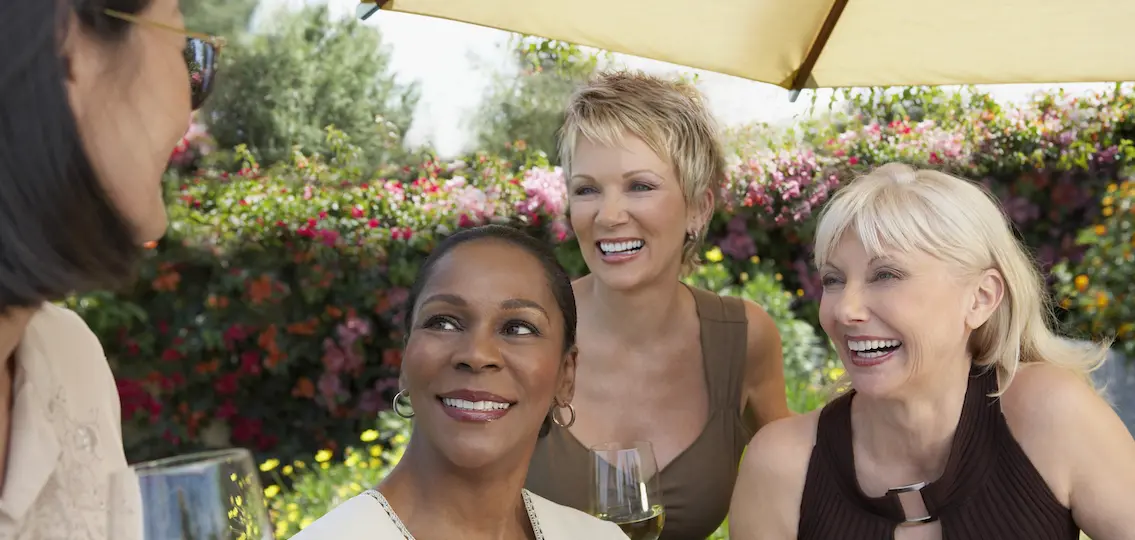In Paperback Crush: The Totally Radical History of ‘80s and ‘90s Teen Fiction, author Gabrielle Moss writes about how many of our childhood novels emphasized the importance of female friendship. It turns out those paperback writers whose books I voraciously consumed were on to something.
For instance, studies have found that women with breast cancer have much higher survival rates when they have lots of supportive friends. Some researchers even argue that not having friends is as bad for your health as smoking or being overweight.
While my girlfriends have always played a key role in my life, these female friendships have been even more important since I became a mom. For the first few years of motherhood, I participated in a playgroup with a handful of other new moms, and we still talk about how we couldn’t have survived those early years without each other. In those early days of parenthood, it was easier to grow and maintain friendships. We all felt desperate for connection with other women going through similar experiences.
When your kids get to be teens, friendships can take a backseat to chauffeuring and keeping up with schedules and work demands. Life with teens is busy, but it’s also emotionally draining — which is why we need our friends now more than ever! Our friends help us stay (relatively) sane during the turbulent adolescent years.
9 Female Friendships Moms Need
1. The friend who has known your teens since they were sweet little things
Although we no longer live in the same town, I catch up with one of my friends from the early playgroup a few times a month. There’s something so comforting in being able to vent about the frustrations of raising teens with a friend who remembers how sweet and uncomplicated they once were — and who loves them as much as I do!
2. The friend who knew you when you were a teen
I’m fortunate to still be close to some of my high school friends. Reconnecting with these friends keeps me feeling young and helps me remember what being a teen feels like. Teenage-hood is definitely different these days, but many of the feelings of this stage are timeless.
3. The friend whose kids are older
This was helpful when the kids were little, and it’s still helpful now. You need people who have been through parenting challenges and reached the other side. When I talk to my older sister about frustrations I’m having with one of my kids, she can relate. And she can provide a perspective my contemporaries can’t.
4. The friend whose kids are younger
I often get together with a friend who has a one-year-old. I love chatting with this friend, and I adore spending time with her baby. But when I leave lunch and get to run errands unencumbered — rather than having to rush home for nap time — I feel grateful to be at this stage.
5. The friend whose kids are the same age as yours
Friends with kids the same age can completely empathize with the challenges you’re going through, and they can keep you in the loop about what’s happening. It’s better if this friend isn’t the mom of your kid’s best friend; friendships undergo a lot of changes during this stage and that can strain your own relationships.
6. The friend you work out with
Exercise releases endorphins that make you feel good. And a workout buddy keeps you accountable.
7. The friend who has never met your kids and doesn’t want to hear about them
Sometimes you just need a break. Enough said.
8. Your Partner and/or Child’s Parent
No matter what your situation, the two of you are linked to this growing human. Being able to talk openly about parenting and what’s happening in your teen’s life is emotionally healthy for you. And when parents get along, kids are less likely to feel anxious.
9. Yourself
Treat yourself well and do things that help you recharge so that you can support your teens. Pick up an old Babysitters’ Club paperback and then give some friends a call!




